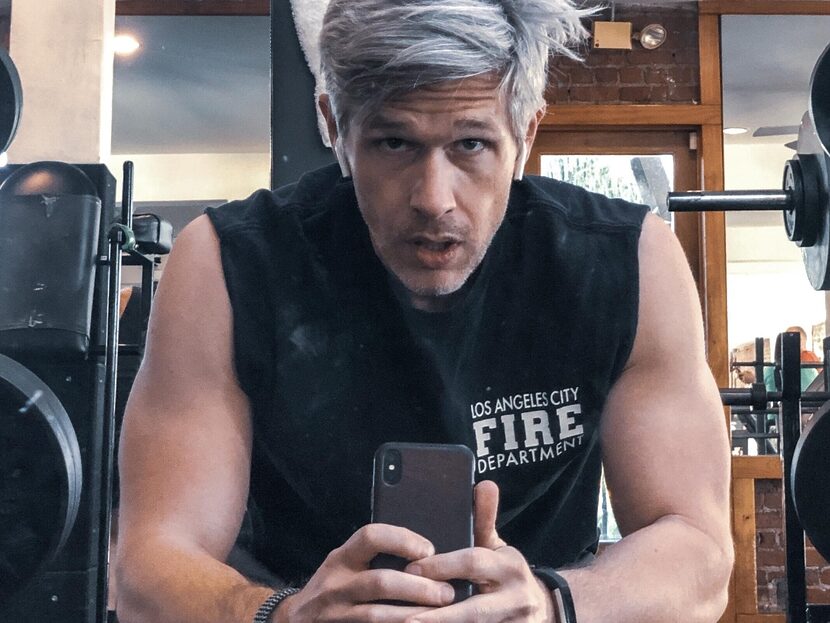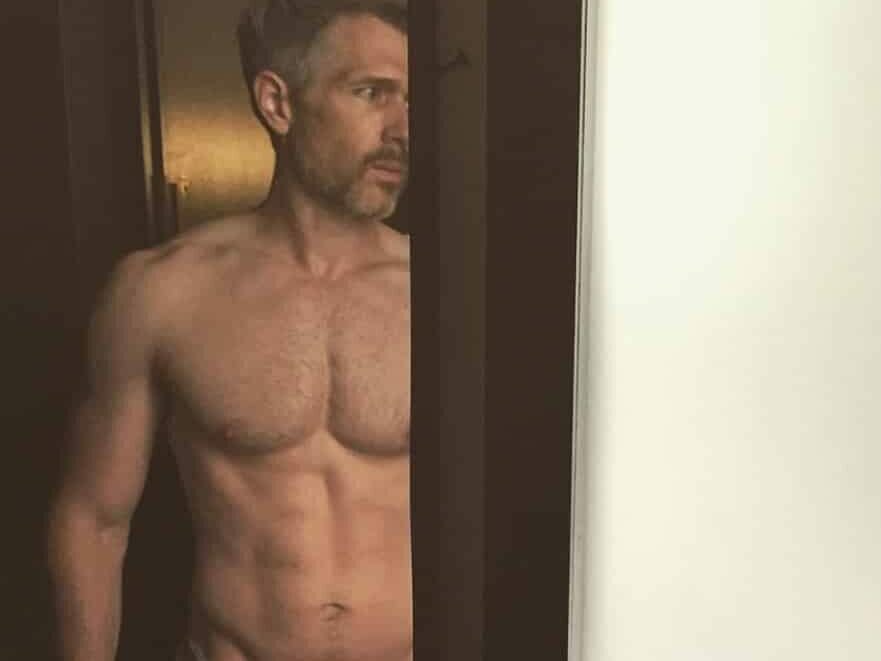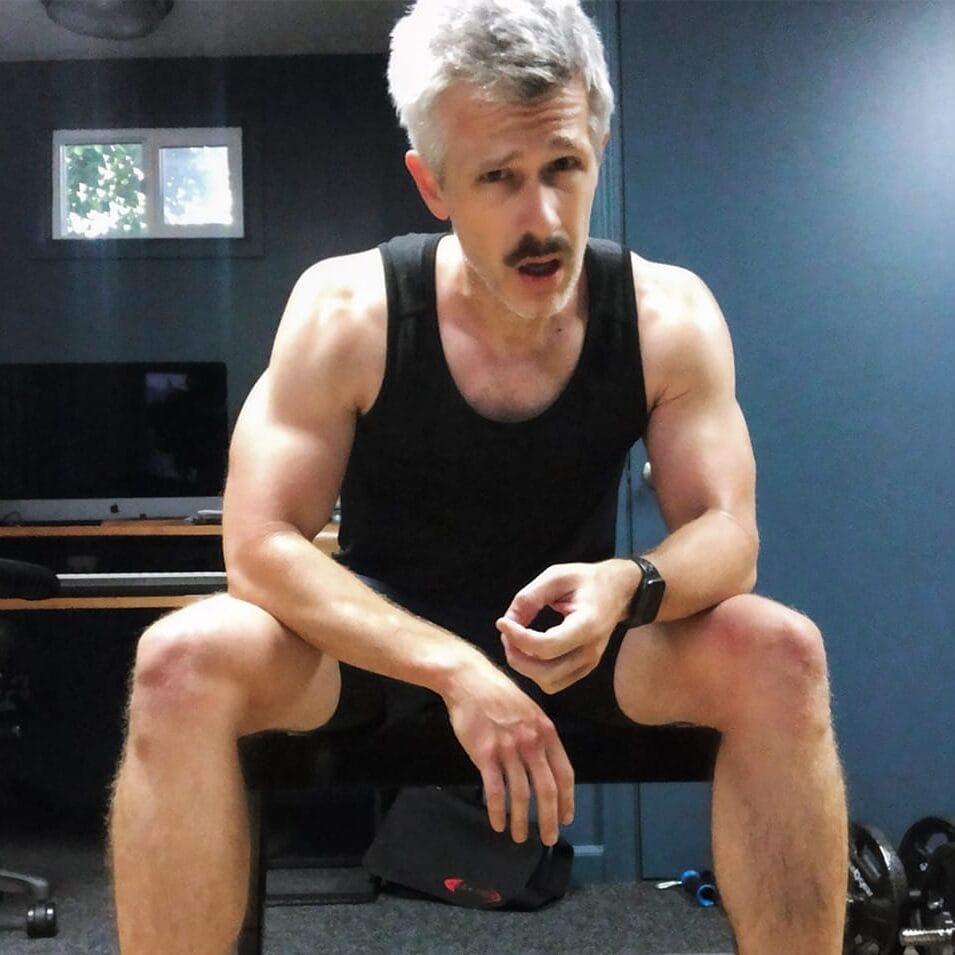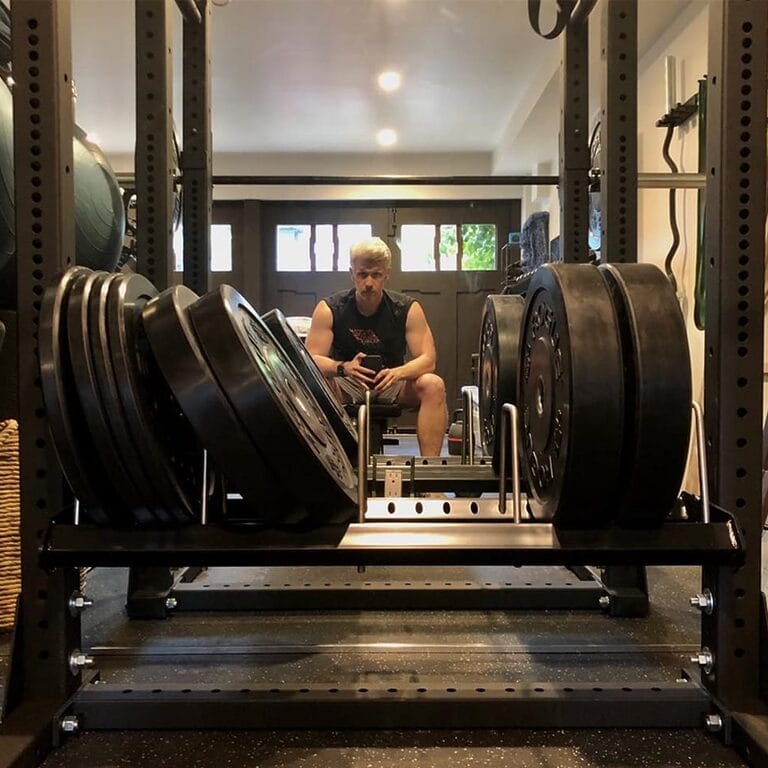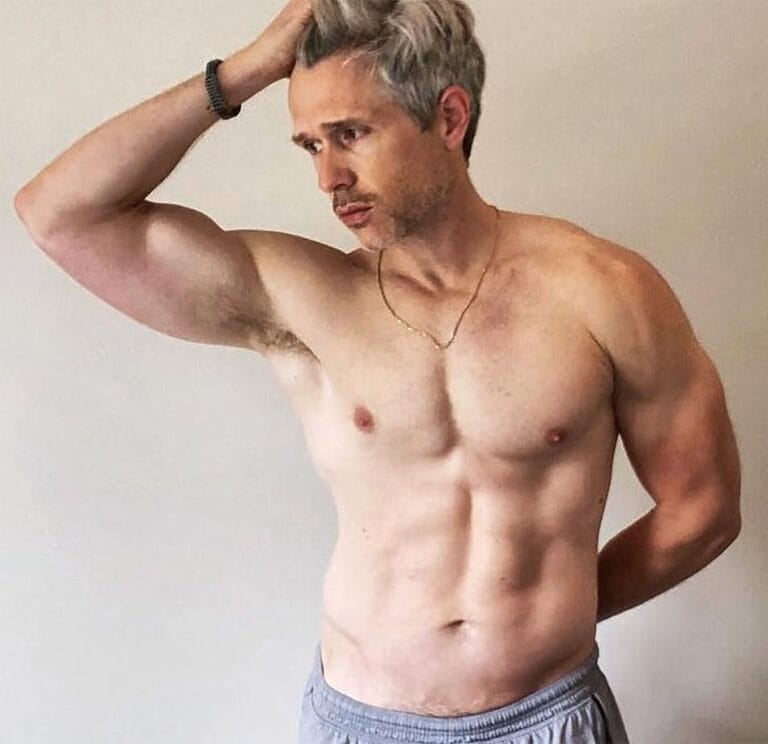Before you begin any fitness program, you need to determine your primary goal.
You might have several goals. That’s great! But, for now, you need to choose the one thing that will have the most impact on how you look and feel.
I suspect that if you’re reading this blog post your goal is to lose fat. You want a lean, athletic body with visible abs and muscular definition. You want to feel better and have more energy, confidence, and stamina.
For those of you on that mission, here is your primary goal:
LOSE THE FAT FIRST
You need to reduce your body fat percentage before you try to increase your muscle mass. You’ll need to begin with an accurate measurement of your body composition, and then look seriously at those numbers. (I review various methods for testing body fat in my book.)
Some truths are absolute-ish. The Earth is mostly round, but actually sort of egg-shaped. Light travels at 186,000 miles per second, although I’ve never clocked it. And most people won’t be able to see abdominal definition until they’re down to approximately ten percent body fat.
If you want to see your abs, you need to lose the fat first. I’m not suggesting that ab definition should be everyone’s goal, but if there is any amount of fat you’d like to lose, you need to get rid of it before you try to achieve other fitness objectives.
The following are reasons why you should drop the fat first.
You will probably feel better if you lose the fat first
Your body becomes more efficient when carrying less fat mass. It will be easier to move because moving less weight requires less energy, with other factors remaining equal. If you weigh less, you can move with greater efficiency.
Your body becomes more efficient when carrying less fat mass. It will be easier to move because moving less weight requires less energy, with other factors remaining equal. If you weigh less, you can move with greater efficiency.
As well, losing excess fat mass will likely balance your hormones. Excess fat mass is associated with lower levels of testosterone in men and lower levels of estradiol in women .
Cortisol, the hormone most often associated with stress, is also impacted by body composition. We know that “evidence is rapidly accumulating that, on average, long‐term cortisol levels are higher in obesity” . Increased stress in obese people may result from the way society mistreats them, or it might be entirely biochemical. Either way, this is a “chicken-or-egg” argument; are people stressed because they are fat, or are they fat because they are stressed?
Regardless of why this correlation exists, obesity and hormone regulation are significantly related. Losing excess fat will likely improve your hormonal balance, which will better equip you to deal with stress from your job, family, or that crossword puzzle you are still trying to solve.
Improved energy efficiency and better hormone regulation mean you will feel better, and feeling good motivates you to continue working out. If you decide to prioritize muscle gains later, you will be ready to go for it.
But, don’t starve yourself
There is evidence that rapid weight loss can cause metabolic slowdown, though scientists don’t fully understand why this happens. Most likely it is due to the body’s innate drive to maintain its current composition—a “set-point”—after that composition has been established for long periods of time. Some people draw a correlation between this metabolic slowing and the yo-yo effect after rapid weight loss.
Remember to approach any fat loss planning for the long-haul, not overnight success. Studies show that the people who are successful in keeping the weight off continue to exercise and count calories
Your muscles will look bigger if you lose the fat first
You probably want to be lean and muscular—that’s why you grabbed this book—but you don’t really know what your muscles look like if they are covered in fat. In other words, don’t worry about gaining mass before you know what you’re working with.
The muscle mass you already have will appear larger when you are lean because you will have greater muscular definition. Definition leads to shadows and lines and creases, the things that make your muscles “pop.”
If your goal is purely aesthetic, you need to see your muscles before you try to change them. You might even decide that you don’t want to add muscle mass once you discover what you’ve got.
Losing fat boosts self-esteem quickly
It’s true. At least it’s definitely been true for me. People who haven’t seen me in a while keep saying, “Whoa, you look jacked… What did you do!?” That feels really good in my brain.
Here’s an interesting tidbit: I’ve recently increased my muscle mass by merely two pounds, and yet my friends seem to think I’m the Incredible Hulk. Why do I look so much bigger now? Because I’ve leaned out. Two pounds of lean muscle look huge!
Conclusion
- If you chase two rabbits you end up with none, so pick the most important rabbit and chase that one!
- I can’t choose your primary goal. You need to do that for yourself. But, in my experience, reducing my body fat percentage had the biggest impact on how I look and feel. In fact, I try not to exceed 14% body fat even during a bulking phase. I know that when I surpass 14%, I start to feel fat. That’s not about how I look; it’s a noticeable difference in performance.
- However, everyone must determine their own primary goal. I’m not shaming anyone into thinking that there is a perfect body fat percentage required to look or feel good. You decide what’s right for you!
- Of course, if you are reading this book because you want to lose fat, then losing fat should be your primary goal. Don’t miss out on that goal by also trying to achieve a bunch of other fitness goals simultaneously, like gaining muscle or running a marathon.
- If a lean physique is what you want, you need to lose the fat first.
